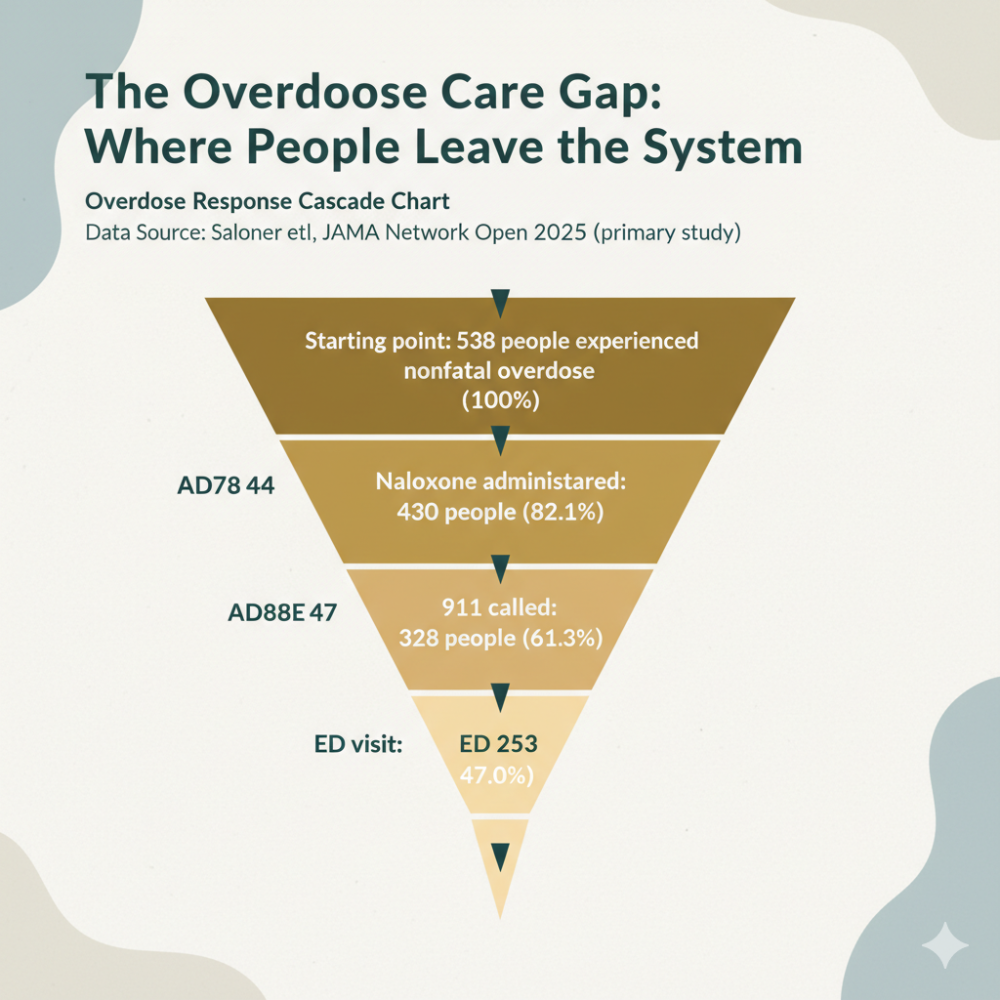With the rise of opioid addiction, the use of methadone as a treatment option has increased substantially. What happens when it’s time to stop using methadone? How long does it take to detox from methadone? What are the risks? According to the Centers for Disease Control (CDC), there are about 5,000 deaths each year due to methadone overdose.
What is Methadone?
Methadone is a long-acting agonist opioid medication used primarily in the management of opioid dependence and medical detox targeting opioid receptors in the brain. It works by reducing the cravings and withdrawal symptoms that occur when a person stops using opioids.
Understanding Methadone Detox
The Purpose of Methadone
The University of Maryland’s Center for Substance Abuse Research (CESAR) refers to methadone as a “synthetic, narcotic analgesic,” or pain reliever. The goal is to provide a safe and controlled level of methadone to overcome the use of illicit opioids/Opioid Use Disorder (OUD), and other substance use disorders.
Some common methadone prescriptions:
Methadone Hydrochloride (Methadose, Diskets, Dolophine):
Methadone Hydrochloride is the generic name for methadone. These medications are used in a clinical setting for maintenance treatment and detoxification in individuals with opioid dependence.
Methadone Oral Concentrate Solution:
Methadone oral concentrate solution is typically used in methadone clinics.
Methadone Injectable Solution:
An injectable solution of methadone is also available but is less common. This form is usually reserved for hospital use for pain management or for patients who are unable to take oral medications.
Side Effects of Methadone: Dependence and Withdrawal
Over time, physical dependence on methadone can develop, making detoxification a potentially challenging part of the addiction treatment process. Individuals will experience Withdrawal symptoms, which can be severe, similar to those experienced with opiate withdrawal.
Common Methadone Withdrawal Symptoms
The withdrawal process from methadone can bring about a range of symptoms as the body tries to readjust to functioning without the drug. Symptoms can be both physical and psychological, and their intensity can vary from person to person based on factors such as methadone dose, length of use, and individual health.
The Substance Abuse and Mental Health Services Administration (SAMHSA) outlines the following as common methane withdrawal symptoms:
Physical Symptoms of Methadone Withdrawal
- Fatigue: Individuals may feel extremely tired and have low energy levels.
- Sweating: Excessive perspiration is a common symptom as the body tries to expel the drug.
- Restlessness and Insomnia: Difficulty sleeping and restlessness are common during withdrawal.
- Muscle Aches and Pains: As the body withdraws from methadone, individuals may experience muscle aches and pains.
- Nausea and Vomiting: Digestive disturbances, including nausea and vomiting, are common as the body reacts to the absence of methadone.
- Diarrhea: The body’s digestive system may react to the withdrawal by speeding up, resulting in diarrhea.
- Increased Heart Rate and Blood Pressure: Withdrawal can cause physical stress on the body, leading to increased heart rate and blood pressure.
Psychological Symptoms of Methadone Withdrawal
- Anxiety: As the body withdraws from methadone, individuals may experience heightened feelings of anxiety.
- Depression: The changing brain chemistry during withdrawal can lead to feelings of depression.
- Irritability and Mood Swings: The discomfort and stress of withdrawal can cause irritability and sudden changes in mood.
- Cravings: The body may crave methadone as it tries to deal with the absence of the drug.
What to Expect During the Methadone Detox Process
Detoxing from methadone is a multi-stage process that involves physical, emotional, and psychological changes. It is a journey that needs to be personalized for each individual, as everyone’s body reacts differently.
Here’s a closer look at what the detox process entails:
Initial Assessment
The first step in the methadone detox process is a comprehensive medical assessment. This includes a physical exam, a medical history review, and a discussion about substance use habits and a person’s typical methadone dose.
This assessment helps healthcare professionals understand the person’s overall health condition, the extent of their methadone dependency, and what methadone maintenance treatment program/detox program will work best.
Detox Plan Development
Based on the initial assessment, a customized detox plan is created. This plan takes into account factors like the individual’s health status, the severity of methadone dependency, and their personal needs.
Early Stage Detox
The actual detox process begins with the early stage, which starts within 24-36 hours after the last dose of methadone. This phase is characterized by initial withdrawal symptoms like anxiety, fatigue, and insomnia.
Peak Stage Detox
The peak stage, which starts around the third day and lasts up to a week, is when withdrawal symptoms are most intense. Symptoms can include flu-like symptoms such as nausea, vomiting, runny nose, muscle aches, and drug cravings. Medical supervision is crucial at this stage to manage these symptoms effectively.
Late Stage Detox
The final phase is the late stage of detox, which can last from a week to several months. During this time, physical symptoms might lessen, but psychological symptoms such as depression and cravings may continue. Continued medical supervision and mental health support are critical during this stage.

Why Does Detoxing from Methadone Take So Long?
Methadone’s unique characteristics contribute to the length of its detox process. Unlike other opioids, methadone is a long-acting medication designed to linger in the body for an extended period. The drug is stored in the body’s tissues and slowly released into the bloodstream, meaning it can take time to completely eliminate it from the system.
Several factors influence the length of the detox process:
Half-Life of Methadone
The half-life of methadone, which is the time it takes for the body to reduce the drug concentration by half, is quite long. It ranges between 15 to 55 hours, significantly longer than most other opioids.
This means that methadone remains in the system longer, and consequently, the detoxification process is extended.
Dosage and Duration of Use
Higher doses of methadone and long-term use create more significant dependence, making the body need more time to readjust once the drug is stopped. The body becomes accustomed to the drug’s presence and will need time to reestablish normal functioning without it.
Physical Dependence
With regular use, the body becomes physically dependent on methadone. When the drug is stopped abruptly, the body needs time to recalibrate its normal functions. This adjustment period can be prolonged, contributing to the lengthy detox process.
Psychological Dependence
In addition to physical dependence, there can also be a psychological dependence on methadone. People can develop cravings and mental reliance on the drug to feel normal or manage stress, which can make the detox process longer and more complex.
Overall, the extended timeline for methadone detox is a combination of the drug’s unique pharmacological properties and the individual’s usage patterns and dependence.
While it might take longer compared to other substances, remember that a slow, well-managed detox can lead to better long-term outcomes. Patience and professional support are key to a successful methadone detox process.
Detoxing Safely from Methadone
Detoxing from methadone can be a challenging and potentially life-threatening process if not handled appropriately. It’s vital to follow a safe and effective plan under the guidance of medical professionals at a treatment facility rather than quitting cold turkey with no medical assistance.
Medical Supervision
A healthcare professional’s involvement is critical for safe detoxification. Attempting to detox without medical supervision can lead to serious complications, including severe withdrawal symptoms.
Medical professionals can provide necessary monitoring and interventions and administer medications, like painkillers, to manage withdrawal symptoms if needed.
Gradual Tapering
One of the most effective and safest ways to detox from methadone is by following a gradual tapering schedule. Suddenly stopping methadone can lead to withdrawal syndrome with severe withdrawal symptoms.
Instead, under the guidance of a healthcare provider, the dose of methadone is slowly reduced over time, minimizing withdrawal symptoms and making the process more manageable.
Mental Health Support
Given the psychological impact of detox, access to mental health resources is vital. This could include counseling, support groups, and other therapeutic interventions. Emotional support can make the detox journey less daunting and equip individuals with coping strategies for cravings and other challenges.
Healthy Living Habits
Maintaining a healthy lifestyle is crucial during detoxification. Adequate nutrition, hydration, regular exercise, and good sleep hygiene can significantly aid the detox process and improve overall well-being.
Post-Detox Care
After the detox process, ongoing support and treatment are essential to maintain sobriety and prevent relapse. This might include continued counseling, support groups, and potentially medication-assisted treatment.
Remember, while methadone detox can be a challenging journey, it’s a crucial step towards recovery. With the right medical guidance, a well-structured plan, and a commitment to healthy habits, detox can be a successful and transformative process.
Recover from Methadone Addiction at Gallus Detox
The detox process from methadone is a complex and individual experience, varying from person to person. But, with the right medical guidance, personal dedication, and a supportive treatment center, it is entirely possible to navigate this challenging journey successfully.
If you or a loved one are battling with Methadone Addiction, get in touch with us at Gallus Detox. Our medical professionals are dedicated to creating a safe, clean, supportive environment to detox and recover from Methadone Addiction.
Methadone FAQs
How Long Does it Take to Detox From Methadone?
The duration of detoxification from methadone can vary greatly among individuals. It generally depends on factors such as dosage, duration of use, individual health, and the specific detox plan. However, the process can range anywhere from a week to several months.
What Factors Affect the Detox Duration?
Several factors can affect the duration of methadone detox. This includes the amount of methadone being used, the length of time the individual has been using it, their overall health status, metabolism, the presence of other drugs or alcohol in the system, and the individual’s psychological readiness and commitment to the detox process.
What Does Methadone Detox Feel Like?
Detoxing from methadone can be quite challenging. Individuals might experience a variety of withdrawal symptoms that are similar to opioid withdrawal. These can include physical symptoms like fatigue, sweating, and nausea, as well as psychological symptoms like anxiety, depression, and cravings.
What is Considered High Doses of Methadone?
Methadone dosage can vary greatly among individuals, depending on several factors like their level of opioid tolerance, their overall health, and the specific nature of their opioid dependency.
Generally, methadone doses in maintenance treatment for opioid use disorder can range from 20mg to 120mg per day. However, it’s important to note that what may be a “high dose” for one individual might not be the same for another due to differences in tolerance levels.
In some cases, patients may require more than 100mg per day, which could be considered high, but these doses are typically reached gradually under close medical supervision to ensure safety.


 Steve B
Steve B 
